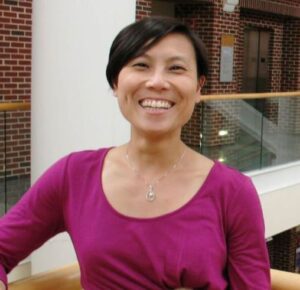Led by UNC-Chapel Hill researchers, a new JAMA study showed that an additional $40 per month for SNAP beneficiaries substantially increased the purchase of healthier food options for people who struggle with food insecurity.

CHAPEL HILL, NC – Food insecurity is associated with a less healthy diet. And using the Supplemental Nutrition Assistance Program (SNAP), formerly referred to as food stamps, is associated with reduced food insecurity, though it’s unclear if beneficiaries can afford to purchase enough healthy foods. So the National Institute of Food and Agriculture sponsored the creation of SuperSNAP, which provides SNAP beneficiaries an additional $40 per month for the purchase of fruits and vegetables with no added sugar, sodium, or fat.
Researchers at the University of North Carolina at Chapel Hill studied the effects of SuperSNAP, which is run through Reinvestment Partners out of Durham, NC, to see if the additional funds translated into the purchase of more healthful foods, setting the stage for better health outcomes.
Published in JAMA Network Open, the researchers found that in the first eight months of the program, SuperSNAP participants not only bought more healthy foods with the extra $40, but they also markedly increased their total purchase of healthier foods with SNAP benefits.
“Our goal now is to see if healthy food incentive programs improve health outcomes,” said first author Seth A. Berkowitz, MD, MPH, assistant professor of general medicine and epidemiology at the UNC School of Medicine. “We will investigate this very soon through a much larger study.”

Berkowitz, senior author Shu Wen Ng, PhD, Distinguished Scholar in the Department of Nutrition at the UNC Gillings School of Global Public Health and the UNC School of Medicine, and colleagues used data from transaction records of a large supermarket chain with approximately 500 stores located across North Carolina from October 2019 to April 2020. All participants were SNAP beneficiaries.
The researchers analyzed monthly spending on all fruits, vegetables, legumes, and nuts; spending on less healthy food categories; and spending on sugar-sweetened beverages.
The study included 667 SuperSNAP participants and 33,246 SNAP beneficiaries who did not use SuperSNAP but shopped in the same stores; 436 SuperSNAP participants had pre-intervention data and were included in the main analysis.
SuperSNAP participation was associated with increased monthly purchases of fruits, vegetables, nuts, and legumes, and a reduction in monthly purchases of sugar-sweetened beverages. There was only a small increase in spending on less healthy food categories compared with the SNAP beneficiaries who did not use SuperSNAP.
As total spending increased, the proportion of total food and beverage spending on less healthy foods significantly decreased, as did monthly spending on sugar-sweetened beverages.
“Changing our diets to be healthier is hard even when we have enough money and time to cook our meals with fresh ingredients,” Berkowitz said. “But when you have less time and money – which is the case with many food insecure individuals – purchasing and preparing fresh, healthy meals becomes even more difficult. And we believe this leads to worse health outcomes. Intervening before people get sick is a public health necessity, and SuperSNAP might be one way to help food insecure individuals.”
Ng added, “COVID-19 has created even more challenges for lower-income households to access healthful foods. By providing these targeted benefits specific to fruits and vegetables without additives, it is possible to meaningfully support families wanting to eat better particularly during economically challenging times. As the SuperSNAP program continues, we are keen to see if participants sustain purchasing healthier baskets of foods and how health outcomes might be impacted in the longer term.”
UNC School of Medicine contact: Mark Derewicz






More Stories
Why Bamboo Cutting Boards Are More Eco-Friendly Than Other Materials
Nutritionist Reveals 10 Easy Ways To Curb Sugar Cravings – Find Out What They Are
How can we make our brains prefer healthy food? – study